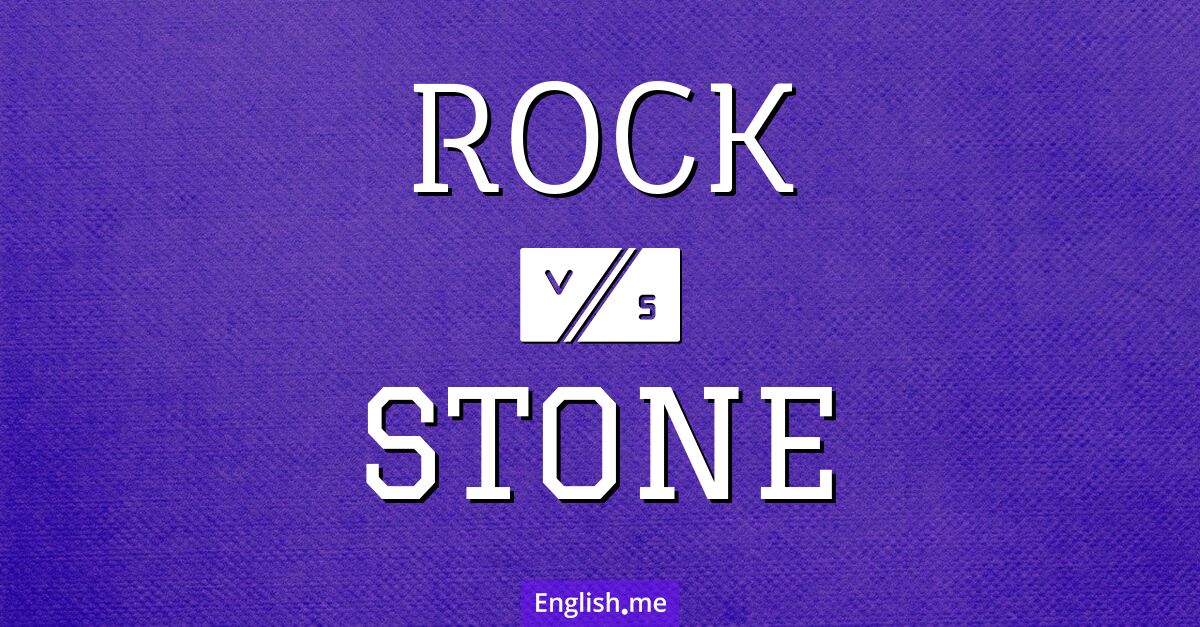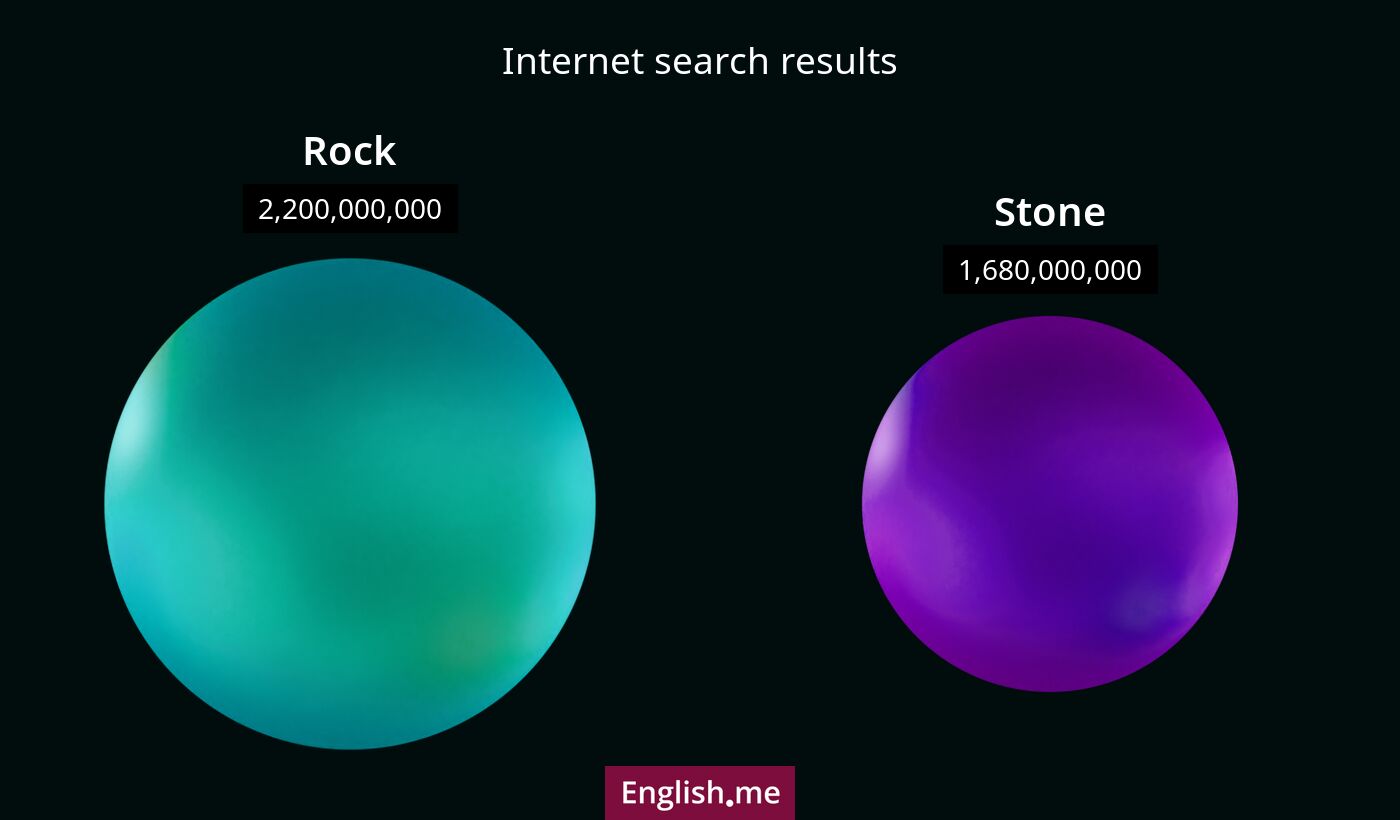"Rock" vs. "stone": what's the difference?
Reviewed and edited by  Anwar Kareem 10/01/2025, 15:57
Anwar Kareem 10/01/2025, 15:57
English.me team member

 What is similar?
What is similar?
Both "rock" and "stone" refer to naturally occurring solid mineral materials that are found on Earth. They are often used interchangeably in casual language to describe hard, solid pieces of earth's crust.
 What is different?
What is different?
The word "rock" typically refers to larger, natural masses of mineral material and is used in scientific contexts, while "stone" often refers to smaller, shaped pieces of rock and is commonly used in construction and decorative contexts.
 Which one is more common?
Which one is more common?

 Examples of usage
Examples of usage
Rock- The river flowed around a large rock in the middle of the stream.
- Geologists studied the unique layers of the ancient rock formation.
- He started climbing the steep rock face with his gear.
- She tossed a small stone into the pond to watch the ripples.
- The castle walls were made of enormous stone blocks.
- He slipped on a loose stone while hiking on the trail.

 English
English español
español française
française italiano
italiano deutsche
deutsche 日本語
日本語 polski
polski česky
česky svenska
svenska Türkçe
Türkçe Nederlands
Nederlands